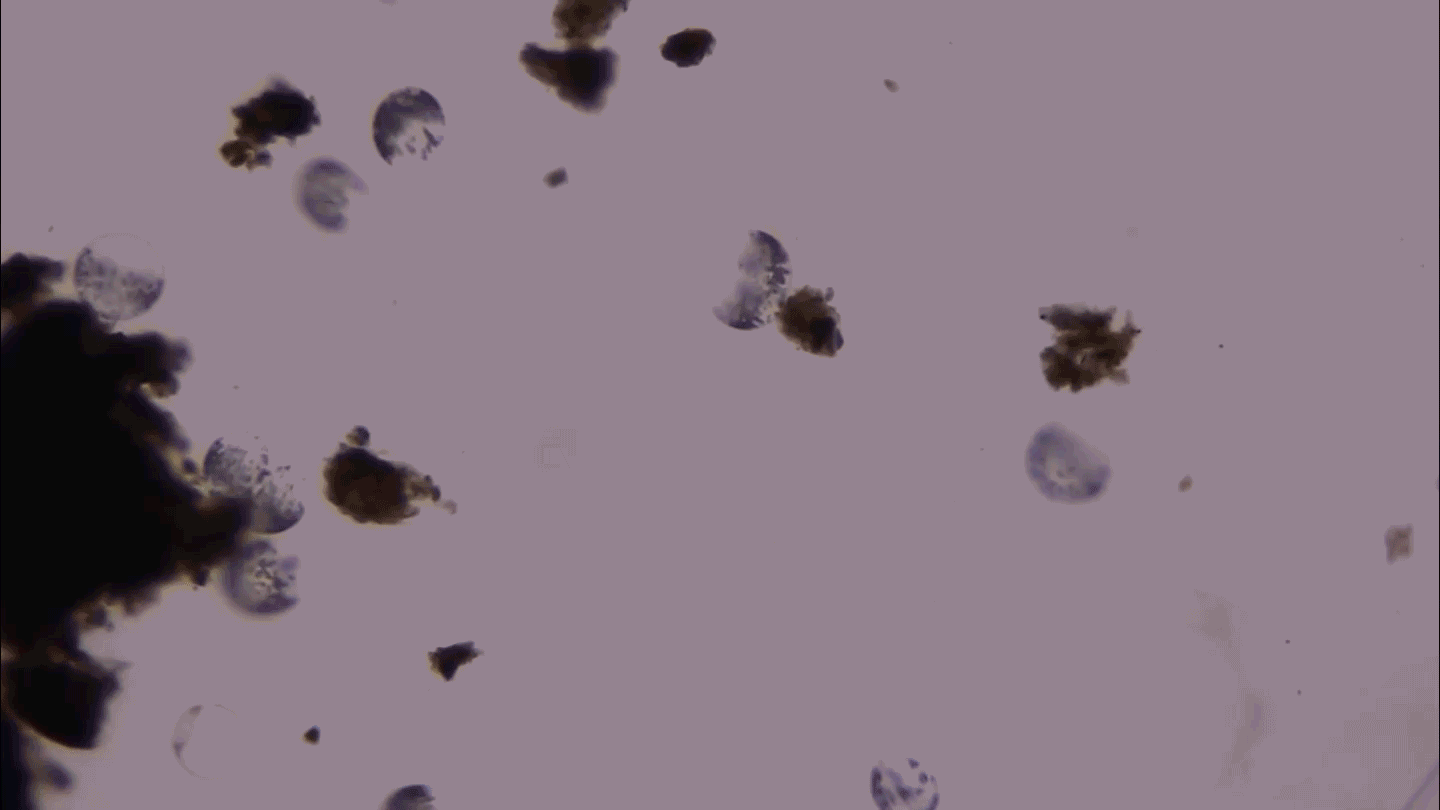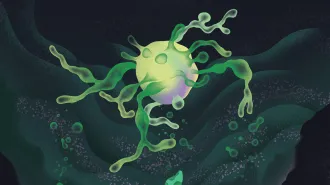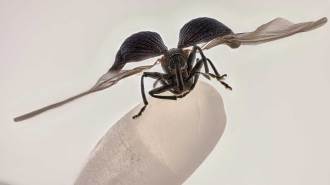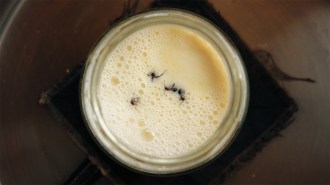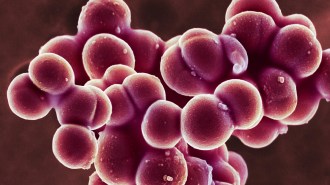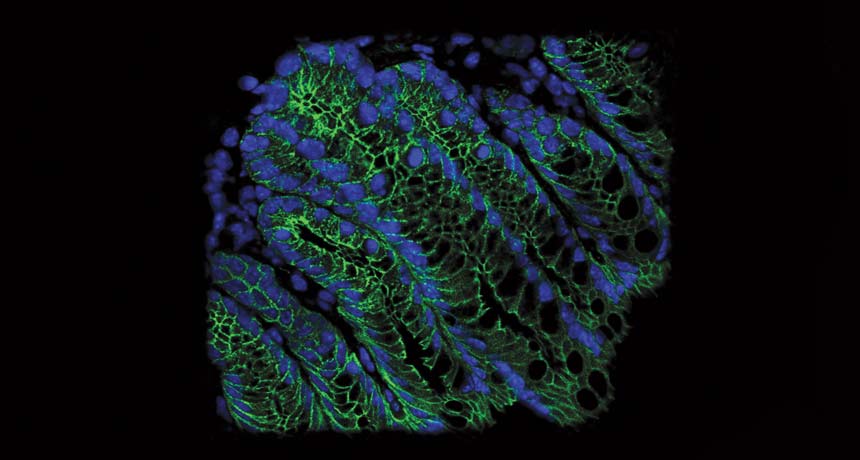
NOT SO SWEET In mouse colons, sugar-eating gut microbes encourage mutations in DNA (blue), which elevate cancer-related proteins (green). The result may explain carb-rich diets’ link to colon cancer — one of several findings this year linking the microbiome to human health.
ANTOANETA BELCHEVA AND ALBERTO MARTIN


